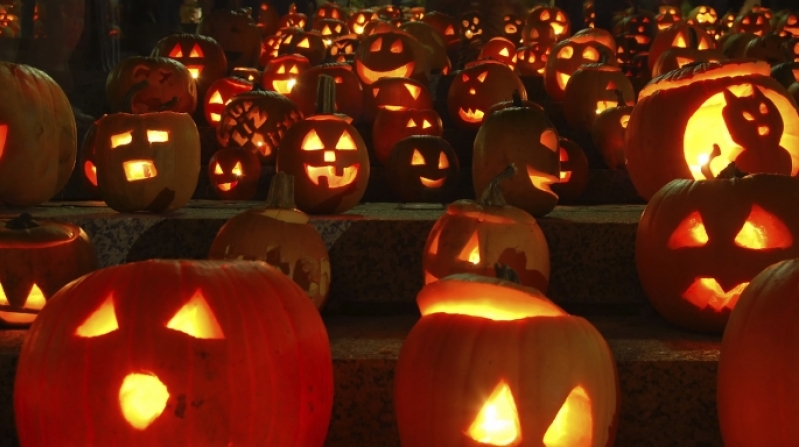
Should Christian parents allow their children to celebrate Halloween? Answers in Genesis (AiG) president Ken Ham says that before making such a decision, parents should ask what the holiday is "really all about."
"I think parents should make their own decision before God as to what they're going to allow their kids to participate in and why," Ham told The Gospel Herald in an exclusive interview. "More and more Christians are recognizing that this is an opportunity to use this time to witness to others."
The President of the Creation Museum and the Ark Encounter pointed out that many churches have alternatives to Halloween, like "trunk-or-treating" events.
"I think that's a good idea," he said, "that way, children get involved in their churches while also having fun."
Another way to share the gospel this Halloween, he said, is to hand out Bible tracts along with candy to trick-or-treaters who knock on the door.
"When people come to the door -- this is what my wife and I do -- we have a big bucket of candy and we also have some special gospel tracts that we give to them with the candy," he said. "We believe we are doing our best to get the message of God's truth to people."
Others engage in "reverse trick-or-treating," Ham explained, where they dress up in costumes, knock on doors, and gives their neighbors candy or home-baked goods along with a gospel tract.
He concluded: "I think it comes down to, parents have to make a decision, they're the ones responsible of their kids. As Christians, I think we need to ask, 'What is Halloween really all about and how can we use it to reach others with the message of the truth of God's word in the Bible?'"
According to a 2015 study from LifeWay Research, 54 percent of Christians in America believe that Halloween can be celebrated "all in good fun," while 18 percent of them avoid the holiday because of its pagan elements. Around 23 percent of Christians avoid Halloween for its pagan origins and other reasons.
"As popular and pervasive as Halloween has become, there is still a sizable minority that avoids at least some elements," said Scott McConnell, vice president of Nashville-based LifeWay Research.
"More than two-thirds of evangelicals welcome the candy, costumes or community interaction surrounding the holiday, but the majority are unwilling to label 'the pagan elements of Halloween' good," McConnell said.
On its website, AiG provides "Halloween Learn & Share Kits," which include "A Biblical and Historical Look at Halloween" tracts, a copy of Halloween, Paganism, and the Bible, and two different kinds of dollar-bill sized tracts.
"Halloween has its obvious downsides, but we can use this day to share the hope of Christ with others by welcoming trick-or-treaters with some candy (or maybe a healthier snack!) and a gospel booklet," reads the website. "Our A Biblical and Historical Look at Halloween booklets are a great way to introduce older trick-or-treaters or their parents to the history of this day, fascinating facts about Halloween, and, most importantly, the gospel message."






